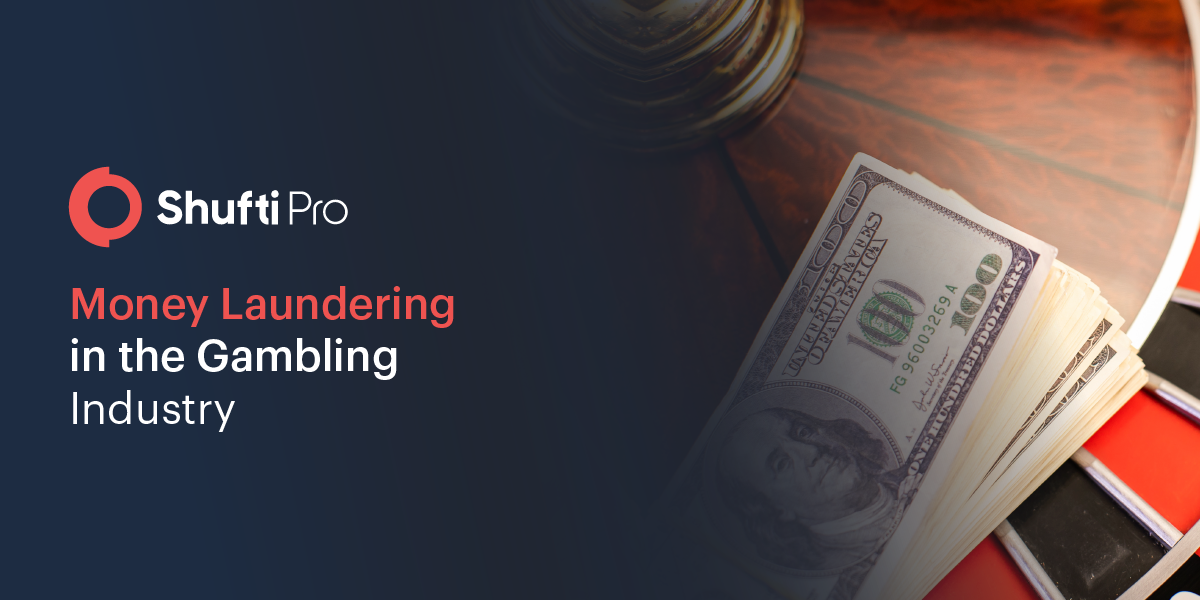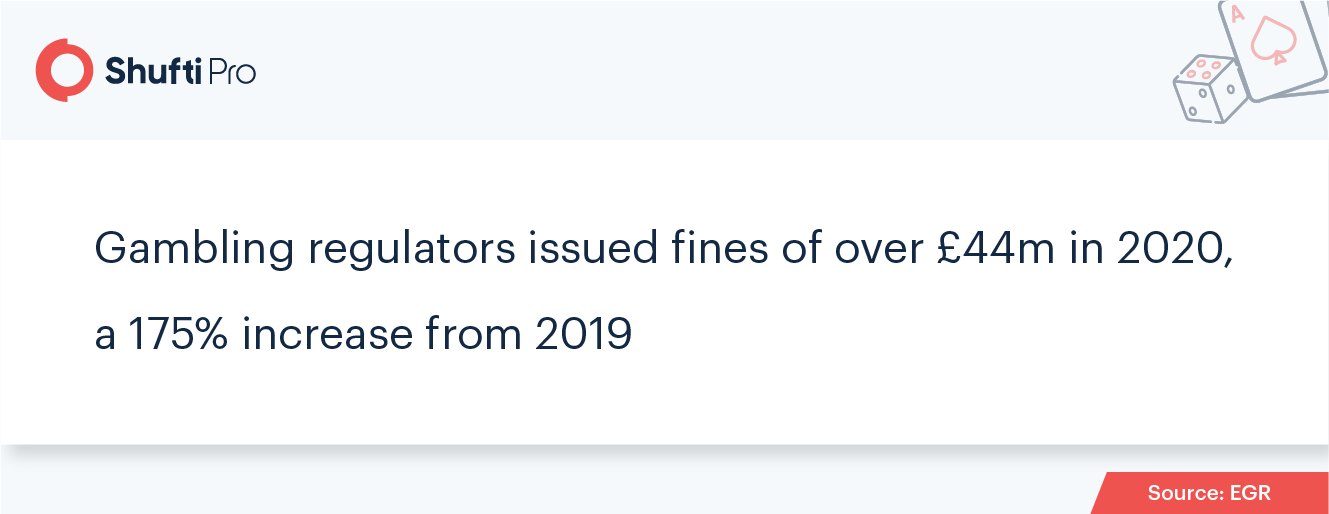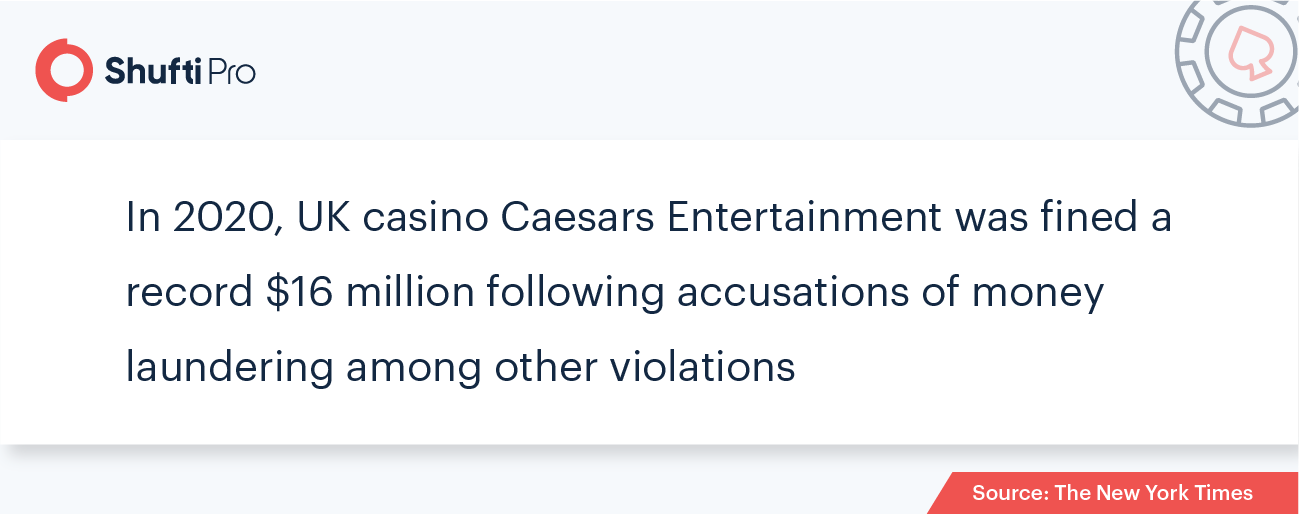The Vicious Cycle of Money Laundering in the Gambling Industry

Money launderers opt for various channels to obscure the origins of their illegally obtained funds including investment in digital assets, real estate, and the formation of offshore companies. Likewise, online gambling platforms also provide opportunities for money laundering to the rich and powerful. Compared to other mediums for channeling illicit money, the gambling sector makes it relatively easier for criminals to dodge the bullet of AML compliance measures.
The commonly perceived method of money laundering is the input of dirty money into gambling accounts and the output in the form of clean cash. But that’s just the tip of the iceberg, as various payment methods including crypto are now being used for adding credits to accounts for online gambling. Although identity verification is required along with bank account numbers while opening up gambling accounts, the variety of payment methods for depositing money for gambling makes the industry susceptible to financial crime.
Why are casinos at a high risk of money laundering?
As casinos do not strictly implement AML programs for monitoring transactions, money launderers find it easier to spend their illegally obtained funds for gambling since declaring the source of the money is not always required. In most cases, criminals disguise the origins of their money by channeling it through illegal gambling operators or shell companies.
On June 7, casino owners from five major cities of Australia were called for a formal investigation which included Crown Resorts, Star Entertainment Group, SkyCity Entertainment Group. The National Australia Bank (NAB) investigation found that Crown Resorts had been“facilitating money laundering, exposing staff to the risk of detention in a foreign jurisdiction and pursuing commercial relationships with individuals” in connection with criminals in other cities.

Major Risk Factors in the Gambling Sector
Clearly, AML regulations are not addressed by the gambling industry in the same way as financial institutions, which is indicated by the record-breaking penalties faced by casinos. Although various jurisdictions in the UK require casinos to implement sufficient AML solutions, a crackdown at the end of 2019 cost online casinos a staggering £8.7 million. Furthermore, the US Bank Secrecy Act (BSA) requires casinos to adhere to compliance measures. The Department of Treasury of FinCEN (Financial Crimes Enforcement Network) issued guidelines back in 2010 regarding AML compliance in the gambling sector.
The common red flags that point towards money laundering activities include patterns of inconsistency in spending amounts and sudden increases in income. That being said, money launderers also go as far as utilizing gambling accounts managed by illegal service providers to stay undetected. Therefore, gambling operators must incorporate appropriate transaction checks not only for the sake of compliance, but to protect their business from being maligned by criminals. Moreover, money laundering risks run deep into the gambling system to affect business-to-business relationships as well as collaborations with third parties. Instances of money laundering have the potential to dispossess the casino of its business partners in addition to hefty compliance fines.

Mounting Regulatory Pressure
Gambling operators are obliged by the Proceeds of Crime Act 2002 (POCA) to stay vigilant for activities involving illegally obtained money. Those gambling operators that have been issued operating licenses by the Gambling Commission, including online platforms without employees, have a duty to implement preventive measures against money laundering and ensure that their operations are compliant with the law. In 2019, there were over 5,000 Suspicious Activity Reports (SARs) to FinCEN, with the highest number of “minimal Gaming with large transactions” cases. The relatively less common red flags include transactions below the CTR threshold, multiple players working together to manipulate the game, unknown sources of chips, and cancelation of transactions to avoid suspicion.
Casinos were issued a warning by FinCEN’s director at a conference earlier this year regarding the reduction of compliance budget to reduce overall working costs. Labeling this as a national security issue, director Kenneth Blanco said,
“so it concerns me when I hear about some compliance budgets being cut by casinos looking to trim costs and retain gamblers. To be clear—we take the culture of compliance seriously. This is a national security issue: not something to be taken lightly—and we will not take it lightly.”
The financial regulator also added, “FinCEN is continually looking at compliance across all financial institutions and will not hesitate to act when it identifies financial institutions that violate the BSA. It is also important to note that not all enforcement actions are public—FinCEN often closes cases with warning letters sent to financial institutions or refers cases to our delegated examiners to conduct additional examinations.” FinCEN also encourages the integration of technologically enhanced solutions in the existing AML compliance programs.“Sports betting, and other mobile gaming services run through your casino, are no different than other products and services. FinCEN expects that your casino or card club is monitoring your sports betting programs for potentially suspicious activity. This includes offering sports betting through a mobile app.”
The regulatory pressure on the gambling industry is not just from FinCEN, as the Gambling Commission in the UK has penalized casinos with amounts of upto $16 million for failure to prevent money laundering. Also, Canada’s financial watchdog FINTRAC has issued guidance on money laundering and terrorism financing indicators. With this list of ML/TF indicators, FINTRAC aims to assist the gambling sector to comply with financial regulations like the Proceeds of Crime (money laundering) and Terrorist Financing Act (PCMLTFA).
What Online Gambling Operators Must do
In September 2020, the UK took initiatives for spreading awareness about the risks of online gambling and made it compulsory to teach this in schools. The same applies to online casinos that must make efforts to raise awareness among their players about the hazards of financial crime through online gambling. Additionally, gambling operators must avoid becoming victims of money laundering scams and abide by AML/CFT standards. This is only possible if online gambling platforms disclose complete details of any event involving high-risk individuals or businesses.
Money launderers use various methods to steer clear of regulatory measures in the gambling sector such as player-to-player transfer of money. Bad actors also make use of legitimate business entities such as gambling operators to obscure the origin of the illegally acquired money that they gamble with. This process ultimately provides them with legitimate money that can be deposited in real accounts. To counter these financial crimes, online gambling operators are encouraged to implement effective strategies for AML compliance. This includes defining their measures for detection of suspicious transactions, risk analysis, and reporting of financial crimes like money laundering and terrorism financing. Gambling is an industry where collecting simple names and numbers does not get the job done, which is why AI-based AML Screening solutions are essential.
Online gambling operators must regularly report to the National Crime Agency (NCA) through the designated officials, as casinos often face penalties for assisting money launderers here and there. Casino employees including cash handlers must be aware of AML compliance guidelines and direct their efforts towards the detection and immediate reporting of suspicious amounts of high-risk entities.
What Shufti Offers
The online gambling industry falls under the same AML/CFT regulations as other financial institutions, but the same cannot be said about the implementation of risk analysis techniques and transaction monitoring. Shufti offers AI-driven identity verification services to enable businesses to revamp their compliance measures – and that’s not all, as Shufti’s AML solution allows online gambling platforms to perform screening of their customers against 1700+ global watchlists.
Want to know more about AML compliance?











